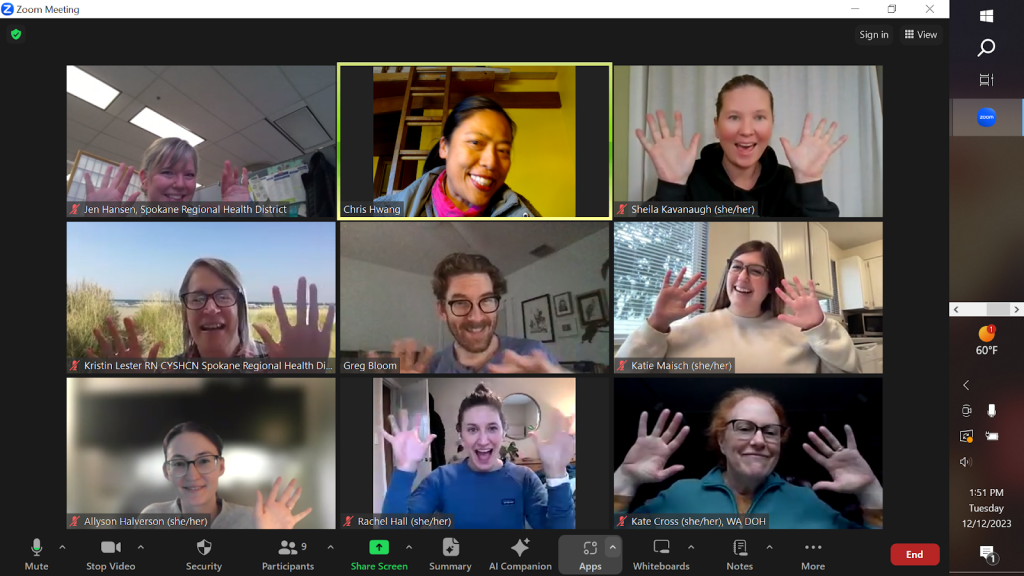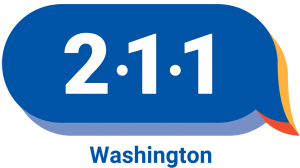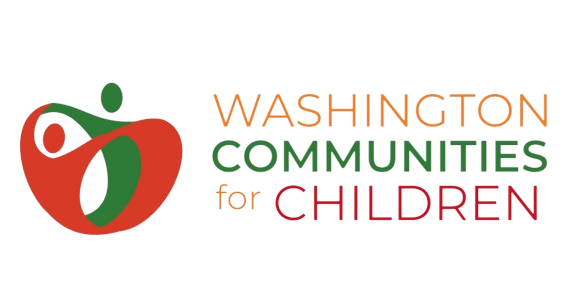Washington Communities for Children (WCFC) is a network of ‘Early Childhood Coalitions’ – groups of local parents, child care providers, non-profits, public agencies, school districts, etc. – dedicated to improving the wellbeing of children, families, and communities across Washington state.
In 2021, the Washington State Department of Health (DOH) began receiving funding from the Health Resources and Services Administration to implement the Early Childhood Comprehensive Systems (ECCS): Health Integration Prenatal-to-Three initiative. As part of this initiative, DOH and partners, including WCFC, are working to increase families’ access to local and culturally relevant services. During the initial stage of the project, WCFC and partners identified opportunities to assess Washington’s resource directory activities and promote alignment, to reduce duplicative labor and improve information quality.

WCFC partnered with Open Referral’s leadership to design and facilitate their strategy – and we are excited to share the report from the second phase of our work. (Download the report as a PDF here.)
The Early Childhood Coalitions that got involved in this cohort had already prioritized improvements to the supply of resource directory information as a key objective for their collective action strategies. They observed that in each of their communities there are a range of resource directories that already exist, yet none are sufficiently comprehensive or reliable to actually meet the needs of families and providers.
Rather than a new strategy that would pit any one system against all others, WCFC’s network expressed interest in developing cooperative solutions that could align efforts among previously siloed systems. That’s where Open Referral came in.
When we first started working with the cohort of early learning coalitions, we had just finished our work with Whatcom County’s Resource Information Collaborative – and we tapped members of the WRIC (including their own early learning coalition leadership) to serve as mentors for their peers in the cohort. Together we provided facilitation support, expert guidance, and technical assistance for each local coalition – working both one-on-one with their leadership and as a whole cohort. First, we developed an analysis of the assets and needs of their communities. Next, we designed a collaborative strategy to improve these capacities – and then, we took action.

In some cases the early learning coalitions already maintained (or had previously maintained) a modest local directory, in which case, we helped them upgrade their directory through both technical tools (like the Open Referral Airtable) and operational protocols (like Whatcom’s RIC Style Guide and Verification Workflow). These upgrades resulted in more efficient processes and higher data quality at low or even no cost. Along the way, we helped these coalitions develop a basic institutional framework for making decisions together.
 Often, these partnerships involved aligning local efforts with Help Me Grow Washington, a statewide resource and referral system for families with young children that provides navigation support through multiple channels – including a statewide hotline, online Benefit Finder, and the ParentHelp123.org website. These channels are operated by WithinReach, the statewide Help Me Grow affiliate.
Often, these partnerships involved aligning local efforts with Help Me Grow Washington, a statewide resource and referral system for families with young children that provides navigation support through multiple channels – including a statewide hotline, online Benefit Finder, and the ParentHelp123.org website. These channels are operated by WithinReach, the statewide Help Me Grow affiliate. 
In one instance – in the San Juan Islands – a cohort member worked with WithinReach to improve the quality of local information in ParentHelp123.org, and at the same time decided they did not want to be responsible for maintaining this information themselves in the future. Instead, they developed a partnership framework that enables them to engage regularly with WithinReach in its process of maintaining local data – and, in exchange, they resolved to deploy a “white-labeled” (which is to say, locally-branded and custom-tailored) version of WithinReach’s website, as powered by the Connect211 website-as-a-service program.
Kristen Rezabek, San Juan’s early learning coalition representative, had this to say about the experience: “It has been invaluable to San Juan for helping launch us onto this new path, learn a new lingo/tools, and think about our process both now and in the future around data exchange and utilization.”
Other partnerships emerging from this collaboration include a data exchange partnership between 2-1-1 and WithinReach in Kitsap county.  Through this process, we have aligned the categories for child and family services used in the 2-1-1 taxonomy with the similar (but distinct) categories used by Help Me Grow to classify the “essential services” to which they refer families. This taxonomic alignment can make it easier to divide responsibilities, exchange data, and improve searchability in the future.
Through this process, we have aligned the categories for child and family services used in the 2-1-1 taxonomy with the similar (but distinct) categories used by Help Me Grow to classify the “essential services” to which they refer families. This taxonomic alignment can make it easier to divide responsibilities, exchange data, and improve searchability in the future.
As we learn from what worked and where coalitions faced challenges, a running theme becomes clear: different communities have different capacities, needs, and priorities – so when it comes to holistic, equitable strategies, one size can’t fit all. Instead, a diversity of local strategies can flourish when some shared capacities are established at scale. For instance, when all parties in a state adopt shared standards for data exchange, align around shared vocabularies, and develop baseline policies for managing information, it becomes easier both for communities to chart their own course and for different paths to align in a shared ecosystem that benefits everyone.
We are excited to see this work continue into its third year and beyond. This year, we expect to advance the partnerships among local and statewide entities, developing new tools and processes to make it easier to distribute responsibilities, share data, and improve the quality of information available to families in need. Many thanks to the Washington State Department of Health, our partners at WithinReach and 2-1-1, our cohort of coalition leaders, and the Washington Communities for Children network as a whole.
Note: This project is supported by the Health Resources and Services Administration (HRSA) of the U.S. Department of Health and Human Services (HHS) – Early Childhood Comprehensive Systems: Health Integration Prenatal-to-Three program. The contents of this post are those of the author and do not necessarily represent the official views of, nor an endorsement by, HRSA, HHS, or the U.S. Government. For more information, please visit HRSA.gov.


Leave a Reply